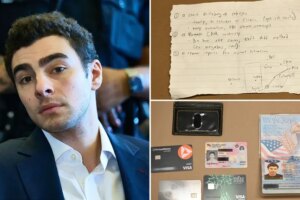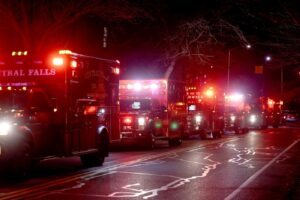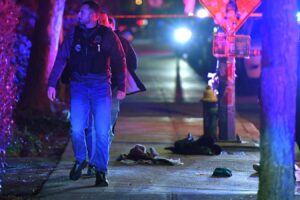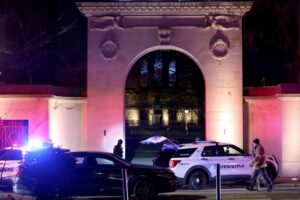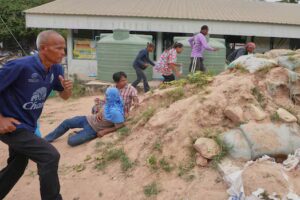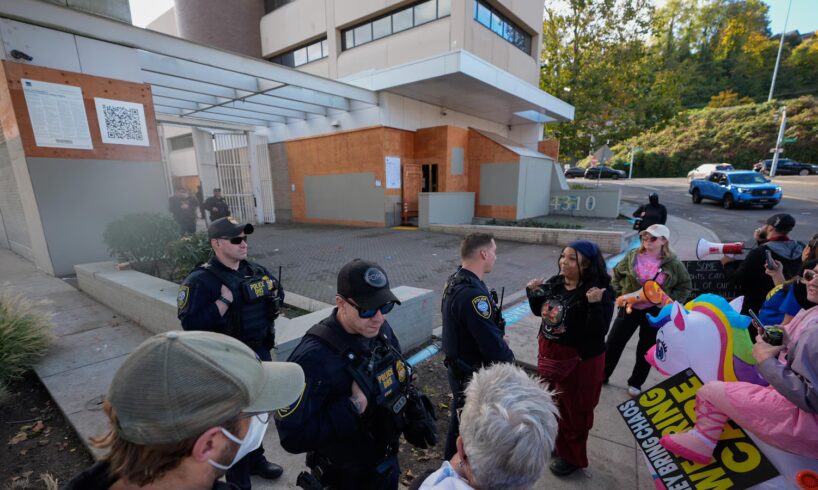
PORTLAND, Ore. — A federal trial over whether President Donald Trump can deploy the National Guard to Portland, Oregon, is set to begin Wednesday, with local police officials expected to testify that federal agents at the city’s U.S. Immigration and Customs Enforcement building have inflamed protests in recent weeks through excessive force.
U.S. District Court Judge Karin Immergut, a Trump appointee, will preside over the trial in Portland. The trial stems from a lawsuit filed by the city and state against the Trump administration in a bid to block the troop deployment.
Immergut has already issued two temporary restraining orders in the case blocking the troops pending further litigation. She found that Trump had failed to show that he had met the conditions set out by Congress for using the military domestically. She described his assessment of the situation in Portland, which Trump called “war ravaged,” as “simply untethered to the facts.”
One of Immergut’s orders was paused last week by a three-judge panel of the 9th U.S. Court of Appeals. But late Tuesday the appeals court vacated that decision and said it would rehear the case before an 11-judge panel.
The complex case comes as Democratic cities targeted by Trump for military involvement — including Chicago, which has filed a separate lawsuit on the issue — seek to push back. They argue the president has not met the legal requirements to deploy troops and that doing so would violate states’ sovereignty. The administration argues that it needs the troops because protests have impeded law enforcement operations.
Portland’s ICE building outside downtown has been the site of nightly protests that peaked in June when police declared one demonstration a riot. Smaller clashes have also occurred since then, and federal officers have fired tear gas to clear crowds, which at times have included counterprotesters and live-streamers.
During the trial, witnesses are expected to take the stand for both sides and face cross-examination. The federal defendants will call officials from ICE, the Defense Department and the Federal Protective Service, the agency that provides security for federal buildings.
The administration argues that it has had to shuffle Department of Homeland Security agents from elsewhere around the country to respond to the protests, showing that it has been unable to enforce the law with regular forces — one of the conditions set by Congress for calling out the National Guard. It has also characterized the protests as a “rebellion” or “danger of rebellion” — another of the conditions.
The state and city argue that federal officers have at times used force that appears to be “needless and arbitrary.”
“They have deployed tear gas and pepper balls on small numbers of nonviolent protesters outside of the ICE building repeatedly, in some cases without apparent need or provocation, and without first exhausting de-escalation or other less-aggressive options,” the plaintiffs wrote in a trial brief.
Portland police have also been “gassed by federal law enforcement” and, on at least one occasion, hit with a crowd-control projectile, the brief said.
The Trump administration says the Portland Police Bureau has been unwilling to help control the protests, describing local authorities in a trial brief as “unhelpful and at times hostile.”
“The record is replete with evidence of the PPB failing to provide assistance when federal officials have requested it,” Justice Department attorneys wrote.
The police say they have made arrests when crimes have been committed, but that they also must respect the protesters’ First Amendment rights.
Communication between the federal and local authorities worsened as the federal agents surged to the building “without a clear command and control structure,” the state and city said.
“To list just one illustrative example, at one point pepper balls were shot in the direction of a PPB officer,” the trial brief said. “When confronted, federal officials responded, ‘help or get out of the way.’”
In Chicago, police officers have similarly been exposed to tear gas deployed by federal officials against protesters.
The Portland trial is expected to last three days.
___
Johnson reported from Seattle.
